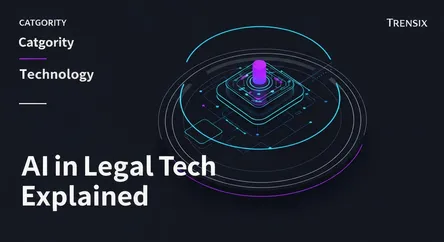Technology
AI in Legal Tech Explained

Discover how AI is revolutionizing the legal industry by automating tasks, improving research, and increasing efficiency for law firms and clients.
What is it?
AI in Legal Tech refers to the use of artificial intelligence technologies to provide legal services and support. This involves applying tools like machine learning, natural language processing (NLP), and predictive analytics to tasks traditionally handled by lawyers, paralegals, and legal staff. Key applications include automating document review for e-discovery, analyzing contracts to identify risks and clauses, conducting legal research by sifting through vast databases of case law, and even predicting potential case outcomes based on historical data. These tools are designed to augment, not replace, legal professionals by handling high-volume, repetitive tasks with speed and accuracy.
Why is it trending?
The legal industry is inundated with massive amounts of data, from court filings to client communications. AI is trending because it offers an efficient way to manage and analyze this information, drastically reducing the time and cost associated with manual labor. Law firms are adopting legal tech to gain a competitive edge, improve service delivery, and offer more predictable pricing to clients. Furthermore, advancements in AI have made the technology more sophisticated and accessible, enabling even smaller firms to leverage powerful tools that were once exclusive to large corporations.
How does it affect people?
For legal professionals, AI streamlines workflows, freeing them from tedious tasks to focus on strategic thinking, client counseling, and complex problem-solving. This shift enhances job satisfaction and productivity. For clients, the impact is significant: AI can lead to faster, more accurate, and often more affordable legal services. It also improves access to justice by powering platforms that help individuals with basic legal needs. However, it also raises important ethical questions about algorithmic bias, data privacy, and the future role of human judgment in the practice of law.